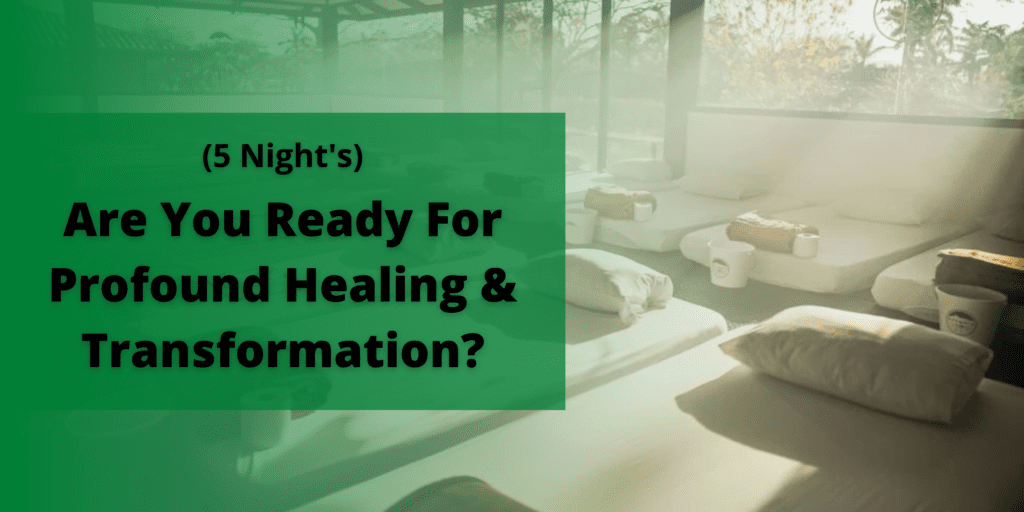
Unfortunately, it is all too common for people to feel that their lives are being run by the mind.
We experience this as a lack of awareness and presence in our own life experiences.
We miss out on what’s happening around us because our attention has been pulled into something else – usually some form or another of thought energy somewhere along the line!
What does awareness of self really mean?
It means different things to different people, but at its core, awareness of self is about understanding your own thoughts, feelings, and emotions.
It’s about being able to look inside yourself and see what makes you unique.
When you become aware of who you are on a deep level, it can change the way you interact with the world.
You will start to make decisions based on what is best for you, rather than what others want or expect from you.

How can you be more aware of yourself and your surroundings?
Almost everyone wants to be more aware of themselves and their surroundings, but not everyone knows how.
Some people think that you have to be a monk or a mystic to be aware of your inner world, but that’s not true!
There are lots of simple ways to become more aware, which can lead to a more fulfilling life.
One way to be more aware of yourself and your surroundings is to be in the present moment.
This might sound like a lot of work, but it’s actually quite easy!
Here are a few ways to get started:
1. Pay attention to your body – Are you tense or relaxed? What sensations do you feel?
2. Listen to the sounds around you – What can you hear? Is there anything that stands out?
3. Notice what’s going on in your mind – What thoughts are running through your head? Are they helpful or distracting?
4. Look at what’s happening in your environment – What’s the temperature? How bright is it? What does the space look like?
5. Take a deep breath and focus on how it feels – Can you feel the air moving in and out of your lungs? How does it make you feel overall?
How to maintain your level of self-awareness over time
We all have moments of self-awareness.
We become aware of our own thoughts and feelings, and we can sometimes even see ourselves from an outsider’s perspective.
This insight is powerful, and it can help us to understand ourselves better and make changes in our lives.
But maintaining this level of self-awareness over time can be difficult.
It takes effort and practice to keep seeing ourselves objectively, especially when we’re faced with challenges or stressors.
Here are a few tips on how to maintain your level of self-awareness over time.
● Make a commitment to yourself to check in with your awareness regularly.
This could be once a day, once a week, or even once an hour. The important thing is to make it a habit.
● Find a method that works for you to help you stay aware.
Some people keep a journal, while others meditate or do yoga.
Experiment until you find something that helps you to stay present and aware.
● Talk to someone who is supportive and understanding.
This could be a therapist, friend, or family member.
Talking about your experiences can help you to process them and gain greater insight.
Awareness of self is a powerful tool that can help us to understand ourselves better and make positive changes in our lives.
By making a commitment to awareness and finding a method that works for you, you can maintain this level of self-awareness over time.

Different levels of self-awareness?
There are three different levels of self-awareness:
● Level One: unaware of self
● Level Two: aware of self
● Level Three: aware of others and the environment as well
● Level One: Unaware of Self
The first level of self-awareness is when we are completely unaware of ourselves.
This is usually the case when we are very young or when we are experiencing a traumatic event.
We are so focused on survival that we do not have the capacity to be aware of anything else.
● Level Two: Aware of Self
The second level of self-awareness is when we become aware of ourselves.
This usually happens when we are older and have developed some emotional intelligence.
We are able to understand our own thoughts and feelings and how they affect our behavior.
● Level Three: Aware of Others and the Environment as well
The third level of self-awareness is when we become aware of others and the environment around us.
This happens when we have developed a high level of emotional intelligence.
We are able to see how our behavior affects others and the environment.
We are also able to take into account the perspectives of others when making decisions.
Tips for Moving up the Levels of Self-Awareness
Here are some tips for moving up the levels of self-awareness:
● Be honest with yourself.
● Get to know yourself.
● Pay attention to your thoughts and feelings.
● Listen to others.
● Take into account the perspectives of others.
By following these tips, you can move up your levels of self-awareness and become more aware of yourself and your surroundings.
The benefits of increased self-awareness
When most people think of self-awareness, they think of Eckhart Tolle’s book The Power of Now.
They might think about how becoming more aware can help them live a more fulfilling life.
But what many people don’t know is that there are dozens of benefits to increasing your self-awareness, which comes with greater introspection and understanding of yourself on a deeper level.
Some of the benefits of increased self-awareness are:
● Understanding your triggers and how to avoid them
● Becoming more emotionally intelligent
● Making better decisions
● Improving your relationships
● Communicating more effectively
● Setting boundaries
If you’re looking to improve any area of your life, increasing your self-awareness is a good place to start. awareness of self-definition,
How to be aware of yourself, the benefits of self-awareness, and how to improve self-awareness
How to become more self-aware?
If you’re interested in increasing your self-awareness, there are a few things you can do to get started.
● Pay attention to your thoughts and feelings.
● Talk to a therapist or counselor.
● Take personality tests.
● Read self-help books and articles.
By following these tips, you can start to become more aware of your thoughts, feelings, and behaviors. awareness of self-definition, how to be aware of yourself, and how to improve self-awareness.

Tips for staying mindful and in tune with your thoughts and feelings
We all have days where we feel off balance, out of sorts, and just not ourselves.
It can be difficult to get back on track when we’re feeling that way.
But it’s important to do whatever we can to regain our equilibrium, especially if we want to live mindfully and in tune with our thoughts and feelings.
Here are a few tips for staying mindful and connected even when you’re feeling down:
1. Connect with nature.
Getting outside and surrounded by plants, trees, and sunshine can do wonders for boosting your mood and restoring your equilibrium.
Go for a walk in the park, sit in nature, or take some time to simply appreciate the beauty of creation.
2. Stay connected with yourself.
One of the best ways to stay mindful is by staying connected with your inner thoughts and feelings.
Pay attention to what’s going on inside of you – journaling can be a great way to do this – and don’t be afraid to express what you’re feeling even if it’s difficult.
3 . Practice self-compassion.
Another key element of staying mindful is practicing self-compassion.
When we’re hard on ourselves, it only exacerbates any negative thoughts or feelings we might be experiencing.
Be kinder to yourself, give yourself permission to make mistakes, and allow yourself time for healing.
4 . Take time for stillness.
Sometimes the best way to connect with our thoughts and feelings is by taking some time for stillness.
This could mean sitting quietly in meditation, practicing mindfulness through yoga or Tai Chi, or simply spending some time alone without distractions.”

Final thoughts
Understanding yourself is critical to having fulfilling relationships.
The more you know about your triggers, patterns, and strengths, the more you can show up in a way that is congruent with who you want to be.
Additionally, self-awareness allows you to have compassion for yourself and others.
We all have problems in relationships – it’s part of being human! – but when we can see ourselves and our loved ones clearly, we can work through them with much more grace.
Finally, self-awareness helps you attune to your own high vibration.
When you are tuned into your own truth, it becomes easier to find and maintain alignment with your highest self.
In short, self-awareness is essential to living a joyful, meaningful life.
Thanks for taking the time to read this! I hope it was helpful. 🙂
Related Article: HOW TO MEDITATE FOR BEGINNERS: A BEGINNER’S GUIDE TO MEDITATION.
Related Article: The Reason Why Spiritual People Are Happier




0 Comments